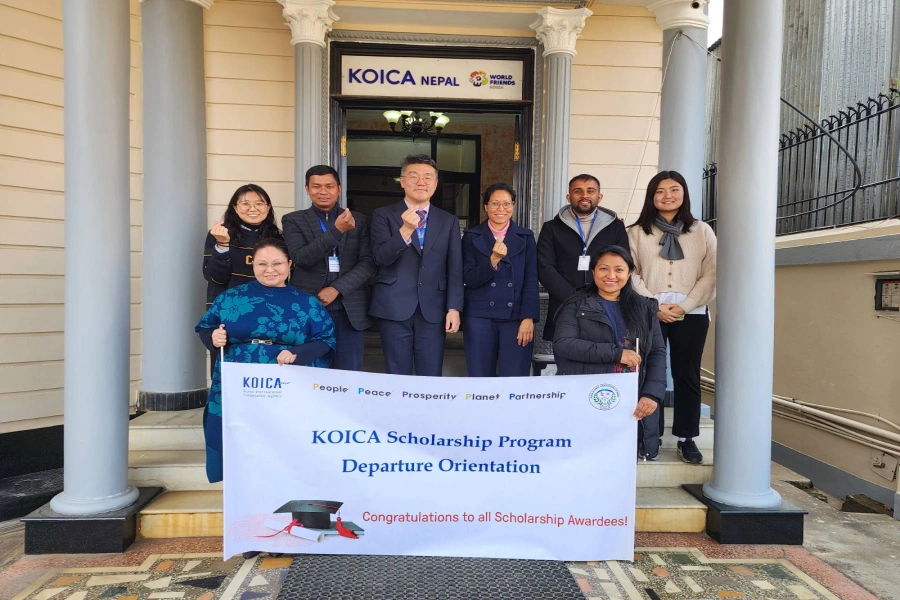YONGIN-SI, July 7: A high-level capacity development training on national health insurance kicked off in Yongin-si, South Korea on Wednesday. Several government officials and parliamentarians are participating in the training.
Dr Gunaraj Lohani, the executive director of the Social Health Security Development Committee (SHSDC), the implementing agency of the government, presented a country report at the training outlining the progress made toward implementing the insurance system and challenges that lie ahead. He stressed the need for a legislation for streamlining the implementation process.
The Korea International Cooperation Agency (Koica) is supporting the government of Nepal in implementing the system. It may be noted that Bloomberg, a US-based media company that analyzes financial data, in 2016 rated the South Korean universal healthcare system as the world's fourth most efficient out of 55 nations.
In Nepal, the health insurance system was started from Kailali district in April 2016 and by July 2017, it has been implemented in 15 districts including Bhaktapur in the Kathmandu Valley. Since the enrollment in the scheme is voluntary, public response has remained low. Around 3 percent of the population in the districts has enrolled so far, according to the report presented by Dr Lohani.
To participate in the scheme, a family of up to five members has to pay Rs 2,500 per year and they will get a coverage worth up to Rs 50,000 per year. Families with more than five members need to pay Rs 425 per additional member for a coverage worth Rs 10,000 each. Currently, those insured need to seek medical treatment from select government hospitals, private medical colleges and community hospitals. Dr Lohani said more hospitals will be enrolled in the future.
Dong-Ho Kim, director general (Strategy and Planning team) at Koica, informed that Nepal is a priority country for his organization, for the support. Several Koica officials speaking on the occasion stressed the need for effective implementation of the health insurance system in Nepal.
The government plans to expand the health insurance program to 38 districts by the end of the current year and to all 75 districts by 2019/20.
As part of the training, Nepali officials will also visit various South Korean healthcare facilities and agencies implementing the universal healthcare system.
The training will conclude on July 14.
KOICA Nepal organizes ‘KOICA Nepal Office Photo Exhibition and...








































